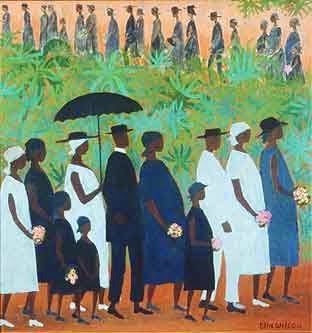ST. JOHN VIANNEY
INTRODUCTION
Today is the feast of St. John Vianney.
John Vianney is the Patron Saint of at least two areas of Church Life: he can be seen as
the patron saint of parish priests and the patron saint of the sacrament of confession.
FIRST: THE PATRON
SAINT OF PARISH PRIESTS
Priests who work in parishes are challenged down through
the years by the example of John Vianney.
I know Pope John Paul II and on most priest retreats,
priests are challenged by the example of Saint John Vianney.
I love the scene in the movie, The Natural, when Roy Hobbs says to Iris Gaines, “I coulda been
better. I coulda broke every record in the book.”
And Iris [played by Glenn Close] asks, “And then?”
And Roy Hobbs, played by Robert Redford says, “And then?
And then when I walked down the street people would've looked and they would've
said there goes Roy Hobbs, the best there ever was in this game.”
I don’t know if priests feel that way about St. John
Vianney – but I think he has the impact of what any great in any field does: he
sets the bar high. He gives folks a goal on what it’s like to be the best.
Good examples – good models – grab us – and challenge us.
As I thought about this today, I don’t think most of us consciously try to give good example ourselves. I do think we consciously try not to give bad example – especially to the innocent.
As I thought about this today, I don’t think most of us consciously try to give good example ourselves. I do think we consciously try not to give bad example – especially to the innocent.
Then it hit me: unconsciously – from experience, from
reading, from sermons, from life, we do try to give good example. We imitate – or know it’s important – to imitate
the best. I assume that’s why the church talks about Christ – and talks about
saints – to give us good examples on how to live life to the full and to our
best.
For example, Saint John Vianney – like our pope Francis –
looked to St. Francis of Assisi as a model.
That meant – the simple life. That meant being a priest not
for the outfits – for the look – for the robes – for the recognition.
That meant to be a church person is to be a person who is concerned about others – especially the poor and the forgotten.
So John Vianney was concerned about the people of Ars.
The story is told that he couldn’t find the place when he was sent there in 1829.
It was in the middle of nowhere. It was only a tiny village – with a main
street, a few houses and a small church with 20 rows of benches – which often
were empty. The area was rural France and priests and church were not very
significant in people’s lives – especially after the French Revolution. Church
attendance was poor when he started. It was startling when he finished there in
1859.
He got to Ars and it was never the same again.
Across the street from the church he helped start an
orphanage – because of the many orphans in the area in need of a home.
I’ve read that he had a strident and annoying voice. However,
his sermons were simple – and filled with substance. They were clear and easy
to get. For example – he compared private prayer to a single piece of straw whereas
public prayer is like a bundle of straw – which can become like a burning torch
sending a fiery cry up to God.
SECOND: PATRON SAINT OF CONFESSION
He had a gift as a confessor. Year after year his reputation
as the
priest to go to confession to increased. One year it is reported that 70,000
people came to Ars – from all over Europe - to go to confession to the Cure of
Ars.
I love that name for a priest: a cure.
John Vianney certainly brought the cure of Christ – his
forgiveness – his love – his curing powers – to people – who felt sick with sin
and of sin.
Back to Roy Hobbs in The
Natural again. During the movie we hear about his big mistake – and how
much it impacted his whole life. Isn’t that the story of so many people? Then when
Roy Hobbs finally confesses to Iris what happened – he starts on the road to
recovery – and the movie has a happy ending.
Every priest knows the reputation of the Cure of Ars and
his dedication to being there for people who want to confess their sins.
Hopefully, when we priests get tired or when we complain that the confession
line is too long or someone bothers us with the request, “Father can you hear
my confession?” we’ll say, “Yes, gladly!”
I’ve always been impressed with the story of the Cure of
Ars and confession – because confession is an important stress in ministry by
Redemptorists. Saint Alphonsus has a whole book on being a good confessor. We’ve
always heard about one of our
Redemptorist saints, St. Clement Hofbauer. Clement spent long hours in the
confessional - sitting there listening
to people – especially in Vienna, Austria. I read somewhere he sat there so
much that he had big time problems with hemorrhoids. I wonder if the Cure of
Ars had the same problem. Interesting question.
CONCLUSION
So on this feast of St. John Vianney, the cure of Ars,
please pray for priests that they be good shepherds and good confessors. Amen.



